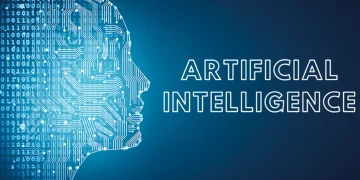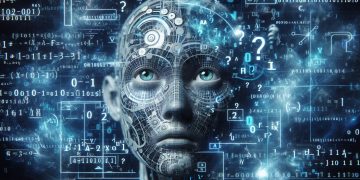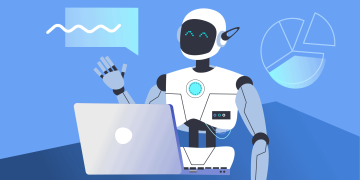Introduction: A New Era in Computing
In the world of modern computing, one of the most revolutionary advancements in recent years is the emergence of quantum computing. At the heart of this groundbreaking technology lies the ability to leverage the strange and powerful principles of quantum mechanics to solve problems that are practically unsolvable by classical computers. While traditional computers use bits to represent data as either 0s or 1s, quantum computers use quantum bits or qubits, which can represent both 0 and 1 simultaneously, thanks to the phenomenon known as superposition.
Quantum computing has the potential to unlock entirely new realms of computational power. From simulating complex molecules for drug discovery to optimizing supply chains in ways never before possible, quantum computing could radically transform industries and society. However, despite its immense potential, quantum computing is still in its early stages, and there are significant challenges to overcome before it can be widely deployed.
This article delves into the principles of quantum computing, its current state of development, its potential applications, and the obstacles that must be overcome to unlock its full potential. We will explore the science behind quantum computing, examine its real-world implications, and discuss the future of this groundbreaking technology.
Understanding Quantum Computing: The Basics
To appreciate the potential of quantum computing, it is important to first understand the fundamental principles that distinguish it from classical computing. Classical computers rely on bits, which are binary units of data that can be in one of two states: 0 or 1. These bits are the building blocks of computation, and classical computers process information by manipulating these bits in various ways.
Quantum computers, on the other hand, use qubits, which are the quantum analogs of classical bits. Qubits differ from bits in that they can exist in a state of superposition, meaning that they can be both 0 and 1 simultaneously. This ability allows quantum computers to process multiple possibilities at once, exponentially increasing their processing power.
Superposition: The Power of Multiple States
In classical computing, a bit can only represent one value at a time—either 0 or 1. A quantum bit, however, can be in a superposition of both 0 and 1 at the same time. This unique property allows quantum computers to perform many calculations in parallel, vastly improving their efficiency for certain types of problems.
For example, if a quantum computer has n qubits, it can represent all possible combinations of 0s and 1s simultaneously. This is in stark contrast to classical computers, which would need 2^n bits to represent all these combinations sequentially.
Entanglement: Connecting Qubits Across Distances
Another fundamental principle of quantum computing is quantum entanglement. When two qubits become entangled, their states become linked in such a way that the state of one qubit directly affects the state of the other, no matter how far apart they are. This phenomenon allows for a level of information sharing and synchronization between qubits that classical bits cannot achieve.
Entanglement is particularly useful for quantum computing because it enables the qubits to work together in ways that enhance computational power. In a quantum computer, entangled qubits can influence each other’s states and contribute to more complex computations, increasing the overall efficiency of the system.
Quantum Interference: Amplifying the Right Answer
Another key aspect of quantum computing is quantum interference. This phenomenon occurs when the probabilities associated with quantum states interact in such a way that certain outcomes are amplified, while others are canceled out. Quantum algorithms harness interference to increase the likelihood of correct answers by reinforcing certain computational paths and eliminating others.
In classical computing, algorithms typically perform a series of operations on bits to arrive at a solution. In quantum computing, quantum interference allows quantum computers to explore a wide range of possible solutions at once, amplifying the correct paths while minimizing the chances of errors.
The Current State of Quantum Computing: Progress and Challenges
Quantum computing is still in the early stages of development, and there are several significant challenges to overcome before it can achieve its full potential. However, recent advancements have brought us closer to realizing practical quantum computers. Major tech companies, including IBM, Google, and Microsoft, as well as a number of startups and academic institutions, are investing heavily in the development of quantum computing technologies.
Quantum Hardware: Building Stable Qubits
One of the primary challenges in quantum computing is the difficulty of building and maintaining stable qubits. Qubits are highly sensitive to external noise, temperature fluctuations, and other environmental factors. This makes it difficult to maintain the delicate quantum states required for computation. Even slight disturbances can cause qubits to “decohere,” or lose their quantum properties, making the computation unreliable.
To address this issue, researchers are exploring various approaches to building more stable qubits. These include using superconducting circuits, trapped ions, and topological qubits, each with its own advantages and drawbacks. However, there is still no clear winner, and much work remains to be done to find the most effective and scalable solution.

Quantum Error Correction: Managing Faults in Computation
Another major hurdle for quantum computing is quantum error correction. Unlike classical computers, which can detect and correct errors in computation, quantum computers are inherently more prone to errors due to the fragile nature of qubits. As quantum computers scale up to handle more qubits, the likelihood of errors increases, making it essential to develop effective error correction techniques.
Quantum error correction codes are being developed to protect quantum information from errors caused by decoherence and other quantum disturbances. However, these error correction techniques require additional qubits, which adds complexity to the system. The development of efficient error correction methods is a critical challenge for the future of quantum computing.
Scalability: Moving Beyond Small-Scale Systems
Currently, most quantum computers have only a small number of qubits—typically between 50 and 100. While these small-scale systems have demonstrated the fundamental principles of quantum computation, they are not yet capable of solving practical, large-scale problems. To achieve meaningful breakthroughs, quantum computers will need to scale up to thousands or even millions of qubits.
Scaling quantum systems is not just a matter of adding more qubits; it also involves addressing issues like qubit connectivity, error rates, and overall system coherence. Researchers are exploring ways to make quantum systems more scalable, but there is still much work to be done before we can build practical, large-scale quantum computers.
The Potential Applications of Quantum Computing
Despite these challenges, quantum computing holds enormous potential for a wide range of applications. While we are still in the early stages of development, there are several areas where quantum computers could significantly outperform classical computers and revolutionize industries.
Drug Discovery and Molecular Simulation
One of the most promising applications of quantum computing is in the field of drug discovery and molecular simulation. Classical computers struggle to model the complex interactions between molecules, especially for large, intricate systems like proteins and enzymes. Quantum computers, on the other hand, are naturally suited to simulate these systems due to their ability to process vast amounts of information simultaneously.
Quantum computers could accelerate the discovery of new drugs by enabling the simulation of molecular interactions at a level of detail that is currently impossible with classical computers. This could lead to the development of new treatments for diseases like cancer, Alzheimer’s, and many others.
Optimization Problems: Supply Chains and Logistics
Quantum computing could also be a game-changer in solving optimization problems. Many industries, including logistics, finance, and manufacturing, deal with complex optimization problems that involve finding the most efficient solutions from a vast number of possibilities. Classical computers can take hours or even days to find optimal solutions to these problems.
Quantum computers, thanks to their ability to explore multiple solutions simultaneously, could solve these problems much more efficiently. For example, quantum computers could optimize supply chains, improve traffic management, and streamline financial portfolios—saving businesses time and money while improving overall efficiency.
Artificial Intelligence and Machine Learning
Quantum computing could also have a transformative impact on artificial intelligence (AI) and machine learning (ML). Quantum algorithms could significantly speed up the training of machine learning models, enabling AI systems to process larger datasets and make faster, more accurate predictions.
For example, quantum computing could improve the performance of deep learning algorithms, which are used in applications like image recognition, natural language processing, and autonomous vehicles. By accelerating the training process and enabling more complex models, quantum computing could push the boundaries of AI and enable breakthroughs in fields like robotics, healthcare, and automation.
The Road Ahead: What’s Next for Quantum Computing?
Quantum computing is still in its infancy, and there are many hurdles to overcome before it can live up to its full potential. However, the progress made so far is remarkable, and the future of quantum computing is incredibly exciting. As researchers continue to make breakthroughs in quantum hardware, error correction, and algorithm development, we can expect quantum computers to solve problems that were previously thought to be intractable.
In the coming years, we are likely to see continued advancements in the scalability of quantum systems, as well as the development of practical quantum applications. Quantum computing may not replace classical computers anytime soon, but it will undoubtedly complement them, providing solutions for problems that classical computers cannot solve efficiently.
The next few decades will be a critical period for quantum computing. While it is difficult to predict exactly what the future holds, it is clear that quantum computing will play an increasingly important role in shaping the technological landscape. With its potential to revolutionize industries ranging from healthcare to finance, quantum computing is poised to become one of the most transformative technologies of the 21st











































